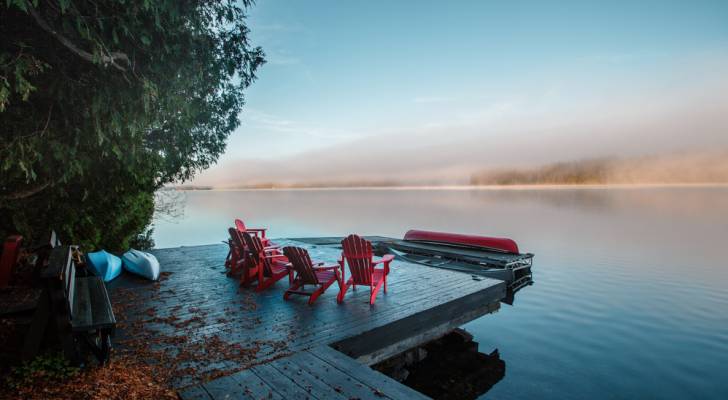
With homeownership already feeling out of reach for many Canadians, the dream of owning a cottage is slipping even further away. Rising costs and new tariff threats are shaking buyer confidence, with nearly one in five Canadians putting cottage plans on hold, according to RE/MAX Canada’s 2025 Cabin & Cottage Trends Report.
"Markets don’t like uncertainty, and we’re seeing that sentiment manifest in a quieter-than-normal spring market across recreational and traditional residential properties alike," Don Kottick, REMAX Canada president, said in a statement.
"We are optimistic that recreational activity could pick up later this season, but there’s a big ‘but’ looming. Buyers and sellers will need further clarity around Canada’s approach to tariffs now that the election is behind us, before we see a return to more normal levels of activity."
Cottage market catalysts
For some Canadians, the cottage market is making a quiet comeback, with 34% of prospective buyers now viewing recreational properties as a safer, more attractive investment. This renewed interest may also be fueled by shifting travel habits. A February Leger survey cited in the RE/MAX report found that 48% of Canadians are less likely to travel to the U.S. in 2025, boosting appeal for local getaways and summer "staycations."
Still, affordability remains the defining concern. According to the RE/MAX survey, 57% of potential buyers identified an affordable purchase price as a top priority, while 35% emphasized the importance of manageable maintenance costs.
Wealth transfers, primary residences and other trends
According to the Chartered Professional Accountants of Canada, a massive $1 trillion wealth transfer from baby boomers to younger generations is set to begin in 2026. That transfer has the potential to impact cottage inventory and market, In fact, 17% of cottage owners who are planning to sell in the next one to two years said the next generation in their family is not interested in taking over the property, influencing their decision to sell, while another 17% plan to put the family cottage on the market as a result of an estate decision.
As weill, thanks to affordability challenges in more urban areas as well as the rise in remote and hybrid work, 30% of Canadians who are planning on purchasing a cabin/cottage in the next one to two years see a cabin or cottage as a viable primary residence, while 29% say that housing shortages make a cottage a viable primary residence to consider.
While REMAX notes this is a trend unlikely to widely take off, it can lead to a unique scenario for certain provinces and regions.
This article provides information only and should not be construed as advice. It is provided without warranty of any kind.